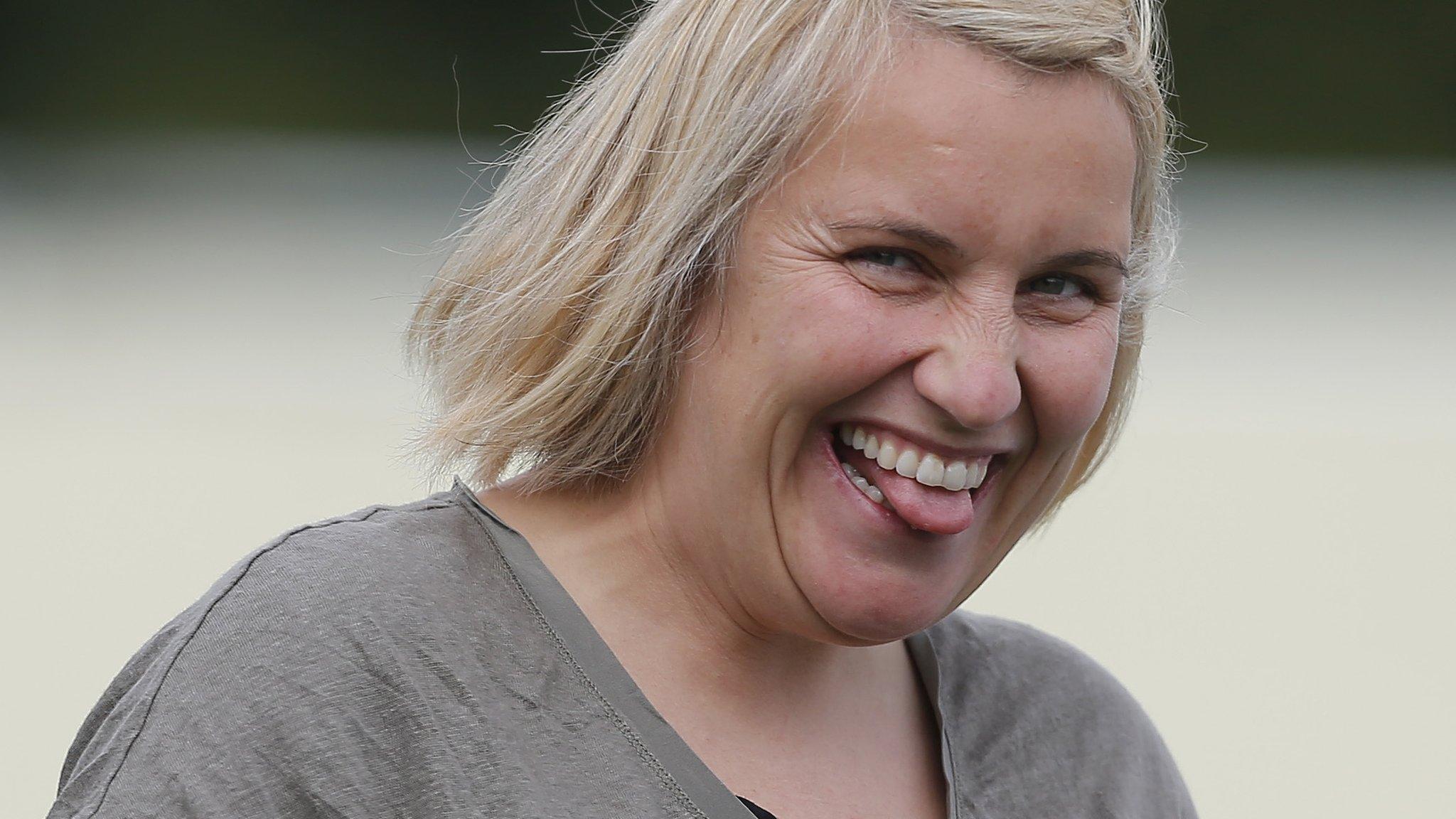Emma Hayes: FA treats refereeing for women's game as 'afterthought'
- Published
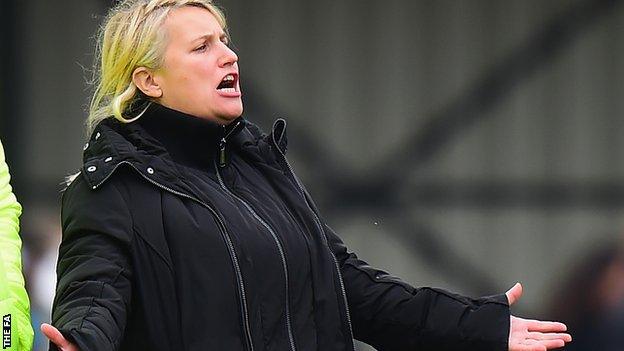
Emma Hayes guided Chelsea Ladies to a WSL and Women's FA Cup double in 2015
The Football Association is treating women's football as an "afterthought" by failing to properly prepare or reward match officials, according to Chelsea Ladies boss Emma Hayes.
Hayes says the pool of referees is too big, while match fees are around half of those paid out in the men's National League.
She went on to tell BBC Radio 4's Today programme she had "massive concerns".
But the FA said it is investing record amounts in the women's game.
In response to Hayes, an FA statement referenced the 'Gameplan for Growth' strategy which was launched in March for all referees in the women's game to ensure officiating of the "highest standard" and "provide comprehensive education and training".
Hayes, who was appointed as Chelsea manager in 2012 and won the Women's Super League and Women's FA Cup double in 2015, posted on Twitter, external on Sunday that "my issue with refs is that they don't ever do WSL training, nor are they rewarded for doing our games", adding "we are a mere afterthought".
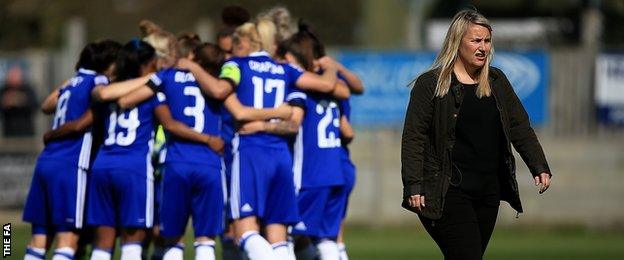
Emma Hayes' Chelsea side beat Sunderland 7-0 on Sunday and are second in the WSL 1 Spring Series table
"We have referees that are coming into the women's game with zero training and development," the 40-year-old told the BBC.
"They have no meet-ups at the beginning of the season, they have no access to clips so they can't evaluate their performances and they are paid around half what they would be if they were reffing non-league games.
"Equally, they rarely know the players and the nuances in their games, and ultimately referees are not given points if they are involved in the women's game. Points for referees [in the men's game] mean promotion or demotion, but in the women's game they get zero marks so there is no real incentive.
"In addition, there is no understanding that there are massive style differences in the women's game. There is a massive concern across the board and ultimately I don't think they have been addressed in the four years that the WSL has been running."
The FA is 'reaching out'
The FA said "we acknowledge there is more to do but our commitment is clear".
Its statement added: "The FA is also: developing a pathway to recruit, train, deploy and mentor more women and men, from all walks of life, to referee at every level of the women's game, and we're reaching out to everyone involved, including clubs, to get a clearer understanding of peoples' perceptions of officiating and seeking ways in which standards could be improved."
But Hayes argues that the number of referees who could take charge of a women's game was simply too large, leading to a lack of continuity.
"The pool of referees needs to be considerably smaller," she added. "Right now it is 500-600 referees and it needs to be smaller so there is a consistency of refs.
"Through my time at Chelsea we have had a different referee almost every game who rarely knows us and we don't know them, and that causes massive problems."
- Published17 May 2017
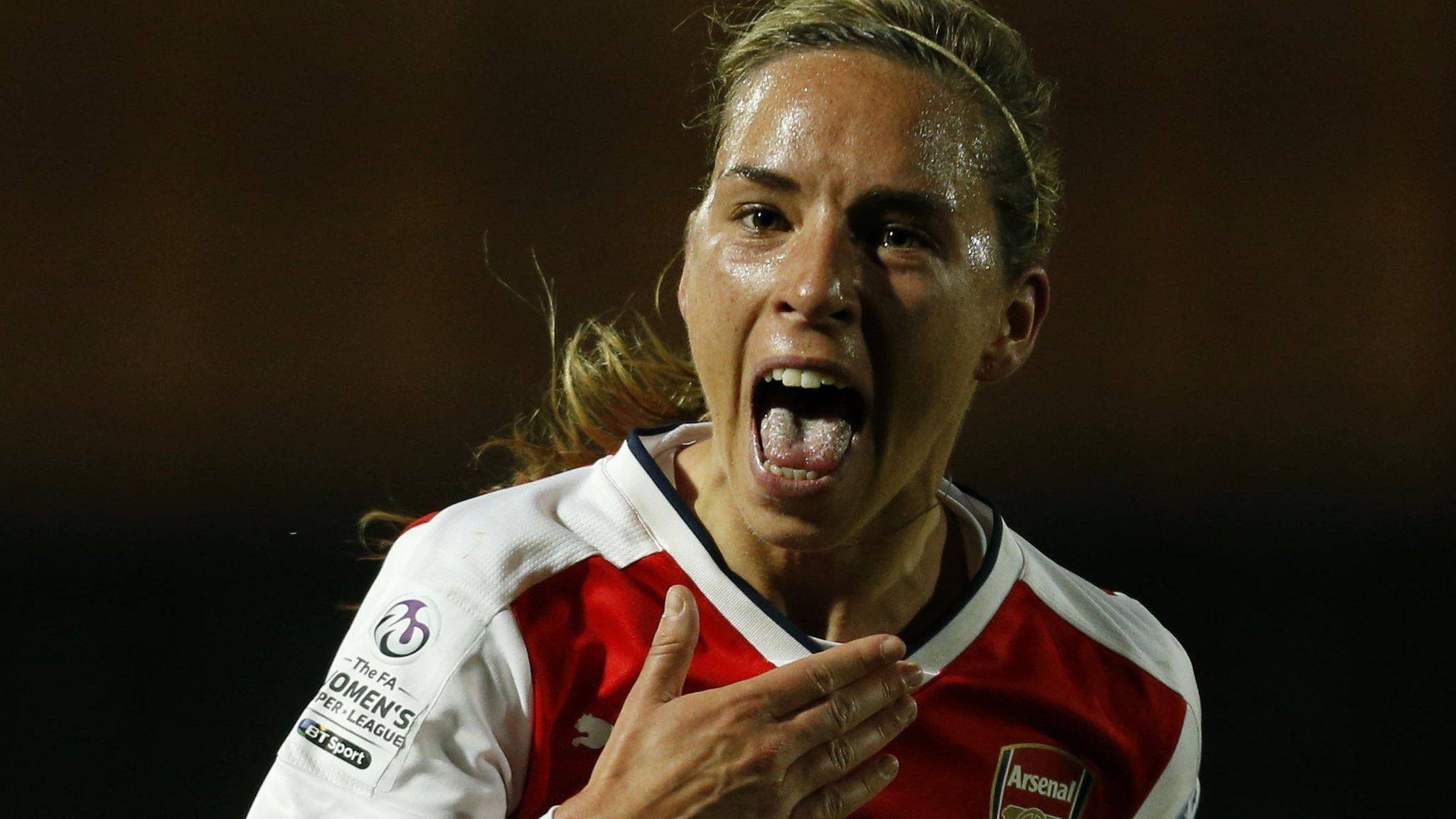
- Published6 October 2016
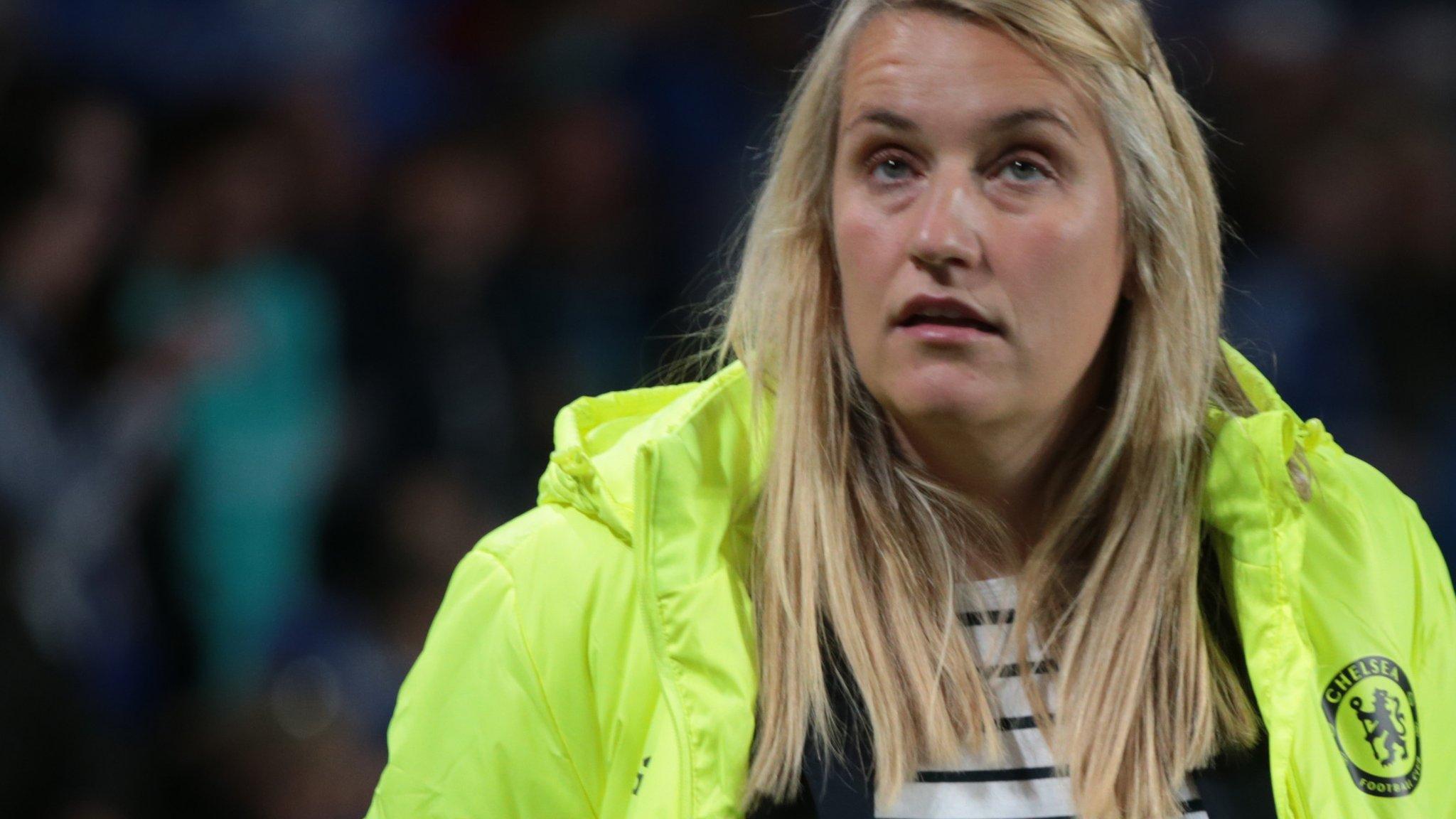
- Published14 May 2017
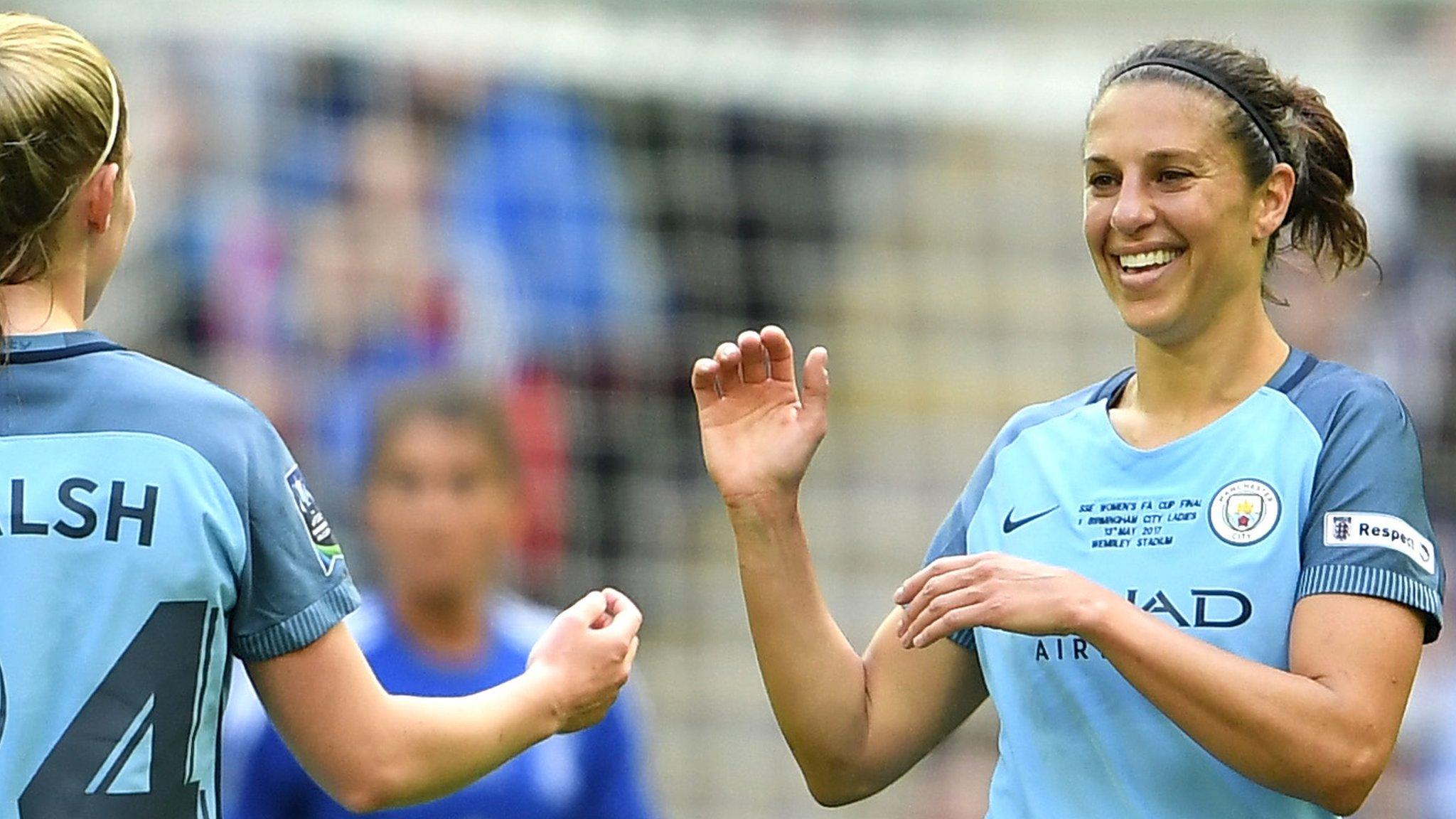
- Published19 April 2016
